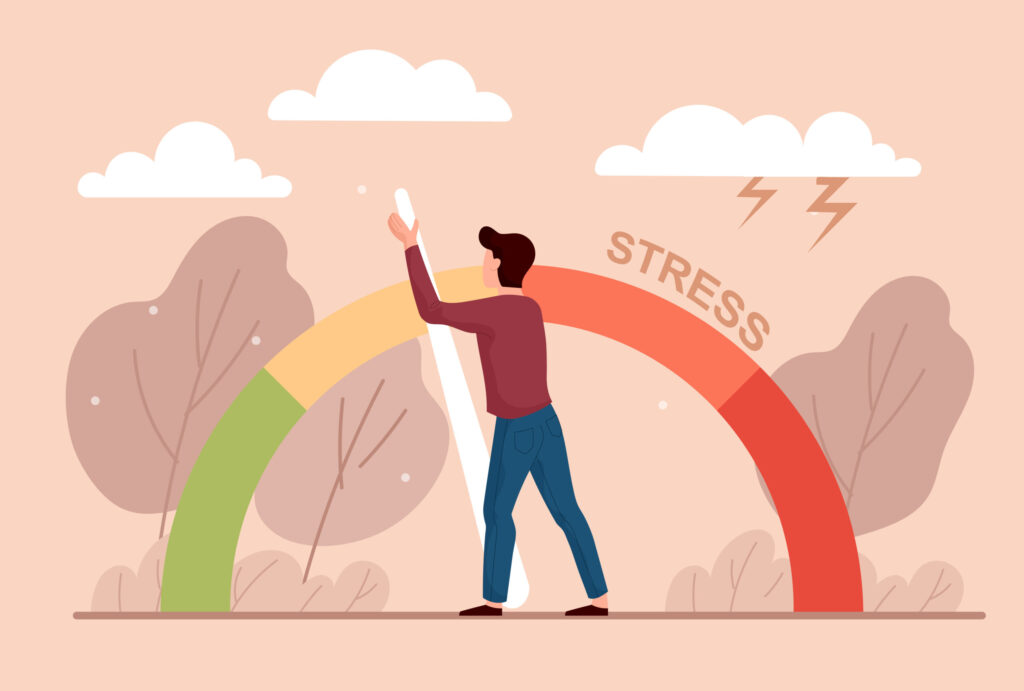Natural Remedies for Stress and Anxiety That Actually Work
Stress and anxiety affect millions worldwide, and many search for natural methods to ease these burdens. Researchers have studied various remedies that help the body and mind cope with stress.
Moreover, many of these solutions prove effective in clinical settings. In addition, natural approaches often complement conventional treatments without harsh side effects.

The Science Behind Stress and Anxiety
Stress triggers a cascade of hormonal responses that prepare the body for danger, while prolonged exposure disrupts normal functioning. Researchers observe that elevated cortisol and adrenaline levels can impair immunity and cognition.
Furthermore, psychological factors such as negative thought patterns worsen anxiety symptoms. Consequently, understanding these biological and mental processes helps us target effective natural remedies.
Biological Mechanisms and Psychological Factors
Biological studies reveal that stress hormones cause inflammation and oxidative damage, affecting overall health. At the same time, cognitive processes shape our emotional responses and coping strategies.
Moreover, research indicates that reducing these hormones improves mood and resilience. Thus, combining scientific insights with natural remedies proves beneficial for managing stress and anxiety.
Natural Remedies for Stress and Anxiety That Actually Work
A variety of natural remedies have emerged as effective strategies for reducing stress and anxiety. Many solutions integrate herbal supplements, nutrition, and mind-body practices to restore balance. Researchers support these methods with data from clinical trials, while users report significant improvements. Consequently, these approaches offer practical alternatives for those seeking relief without synthetic medications.
Herbal Remedies
Herbal remedies provide a time-tested approach for managing stress. Many traditional herbs have demonstrated calming effects in recent studies. Below are several herbs that show promise in reducing anxiety:
- Ashwagandha: Lowers cortisol levels and enhances mood.
- Bacopa Monnieri: Improves cognitive function and reduces anxiety symptoms.
- Chamomile: Provides mild sedation and improves sleep quality.
- Lavender: Eases tension when used in aromatherapy.
These herbs have long histories in traditional medicine, and modern research increasingly validates their benefits.
Nutritional and Dietary Approaches
A balanced diet supports mental health and mitigates anxiety naturally. Researchers suggest that omega-3 fatty acids, found in fish and flaxseed, help regulate mood and brain function. Additionally, antioxidants from fruits and vegetables combat oxidative stress and inflammation. Thus, incorporating nutrient-dense foods plays an important role in natural stress management.
Mind-Body Practices
Mind-body practices help synchronize mental and physical relaxation. Many studies confirm that techniques such as meditation and yoga reduce stress markers. Consider the following mind-body strategies:
- Meditation: Enhances mindfulness and decreases anxiety through focused breathing.
- Yoga: Combines physical postures with deep breathing to promote relaxation.
- Deep Breathing: Increases oxygen flow and activates the body’s relaxation response.
- Tai Chi: Uses gentle, flowing movements to improve balance and mental clarity.
These practices empower individuals to manage stress actively and improve overall well-being.
Lifestyle Modifications for Reducing Stress
Regular exercise, proper sleep, and social engagement form the backbone of a stress-reducing lifestyle. Research shows that aerobic activities release endorphins, naturally elevating mood. In addition, a consistent sleep schedule stabilizes emotions and improves cognitive function. Therefore, simple lifestyle changes can yield significant benefits in managing anxiety.
Complementary Therapies and Alternative Treatments
Complementary therapies such as acupuncture and massage therapy offer additional avenues for stress relief. Clinical studies indicate that these methods lower stress hormones and ease muscle tension. Moreover, they complement other natural remedies by promoting relaxation and improved circulation. Thus, alternative treatments present a well-rounded approach to reducing anxiety.
Future Directions in Natural Stress Relief Research
Scientists continue to explore natural remedies to better understand their mechanisms and optimize treatment protocols. Emerging research on adaptogens, nutritional genomics, and personalized stress management shows promising potential.
Additionally, advances in neuroimaging and biomarker analysis help tailor natural interventions to individual needs. Consequently, future research may yield even more targeted and effective natural therapies.
Case Studies and Testimonials
Many individuals have experienced remarkable improvements after adopting natural remedies for stress and anxiety. For instance, several case studies report that combining herbal supplements with meditation reduced symptoms significantly.
Moreover, testimonials from users often describe enhanced mood, better sleep, and a greater sense of calm. In this way, real-world evidence reinforces scientific findings and encourages further adoption of these natural methods.
Integrative Approaches and Personalized Plans
Integrative approaches blend natural remedies with conventional care to offer comprehensive stress management. Experts advise creating personalized plans that combine dietary changes, herbal supplements, and mind-body practices.
Additionally, professionals tailor these plans based on individual health profiles and stress triggers. As a result, personalized interventions help maximize benefits and improve quality of life.
Practical Strategies for Everyday Stress Management
Implementing natural remedies in daily life requires simple, practical strategies that fit modern lifestyles. First, set aside time each day for relaxation practices such as deep breathing or a short yoga session.
Next, create meal plans that incorporate nutrient-rich foods and consider supplementing with proven herbs like ashwagandha. Finally, establish routines that promote good sleep hygiene and regular physical activity. These strategies can gradually build resilience against daily stressors.
True well-being comes from harmony between the body and mind — when you nourish both, stress loses its grip.
Rujuta Diwekar
Conclusion
Natural remedies provide promising, scientifically supported strategies to reduce stress and anxiety. By integrating herbal supplements, proper nutrition, mind-body practices, and lifestyle modifications, you can manage anxiety effectively.
Moreover, complementary therapies and personalized plans offer a holistic approach to mental well-being. In summary, adopting these natural strategies empowers you to lead a calmer, healthier, and more balanced life, backed by both tradition and modern science.